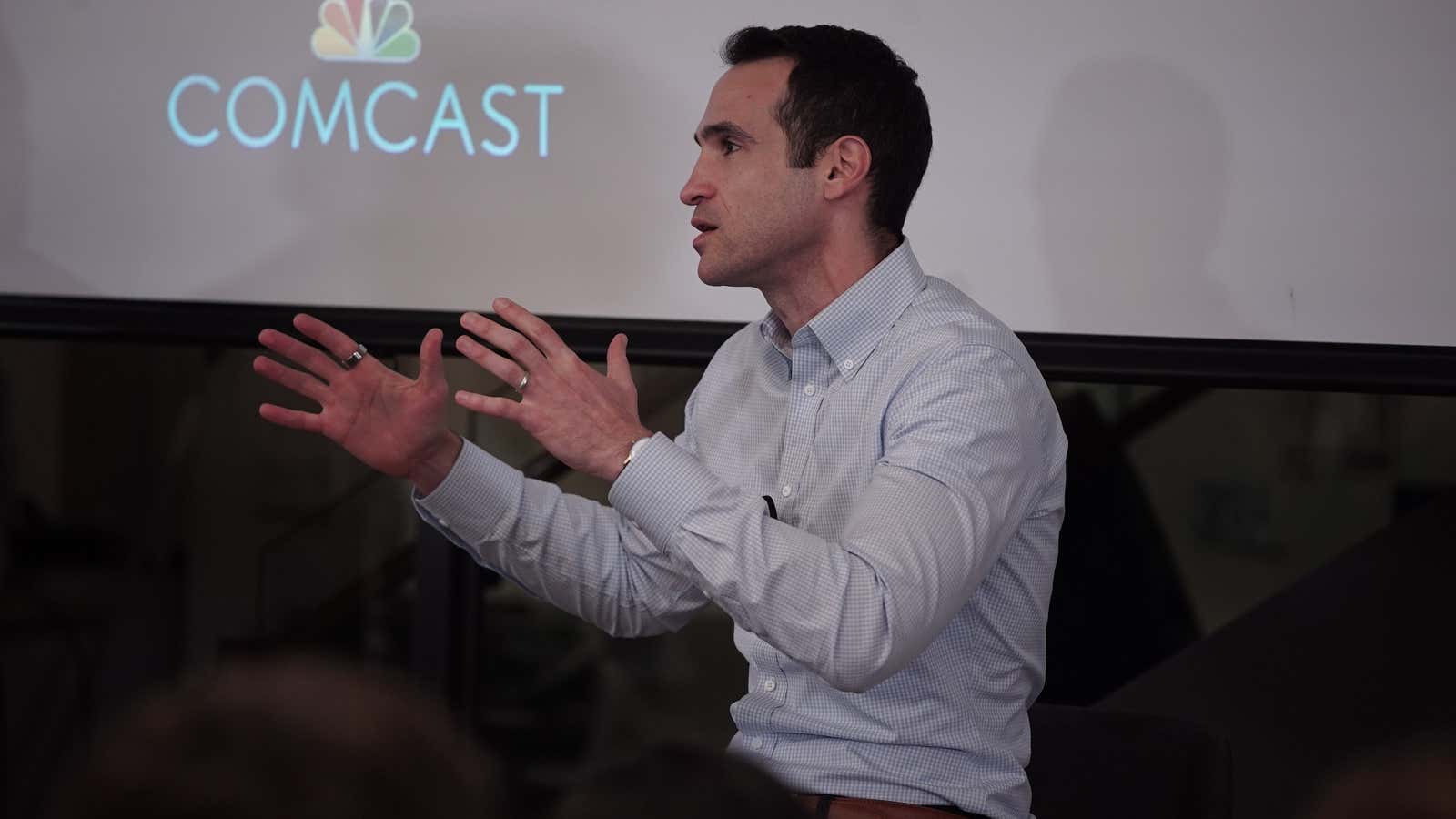Smartphones apps, social media, and smart devices dominate our attention. But in a world full of infinite pings and notifications, software that makes itself a habit for the user is the only way to stay relevant, says Nir Eyal, author of Hooked: How to Build Habit-Forming Products.
“The companies that establish habits are the ones that will win. If you’re not on the first page of someone’s home screen, or if you’re not a skill they remember to ask Alexa for, then you might as well not even exist,” said Eyal said at an event hosted by Quartz on Monday, Dec. 10. “So the question is how do you build those habits. How do you create the kind of product people turn to on their own?
That’s especially true in the age of the smart speaker, when there’s not necessarily a screen or display with apps to chose from. Eyal points to Amazon as the master of this technique, with products like Alexa, Dash buttons, and even the free barcode-scanning Alexa Wand.
“The reason they’re willing to put an Echo in your home at a loss is because they know that if they can change that habit of writing down your shopping list they can own that habit. That’s their competition, the shopping list.” he said.
But habit-forming software isn’t necessarily a bad thing. Some companies can use to help people, like Duolingo, or workout and finance apps, Eyal said.
“If we define manipulation into tricking our brains, so to speak, we pay for the privilege to have our emotions manipulated. It’s called entertainment,” he said. “I want to feel something, I want to go to the gym, I want to save more money.”
Eval says the antidote to determining whether something is persuasive (good) or coercive (bad) is what he calls a “regret test,” a practice of testing the habit-forming feature with real people, and seeing whether they regret using the feature after being fully briefed on the kind of manipulation being used.
By testing it on real people a company can discover whether users feel like they’ve been duped or forced into an uncomfortable habit, and not have to hide their practices in their terms of service.
“It’s not good enough to just say ‘we told you,'” he said.
